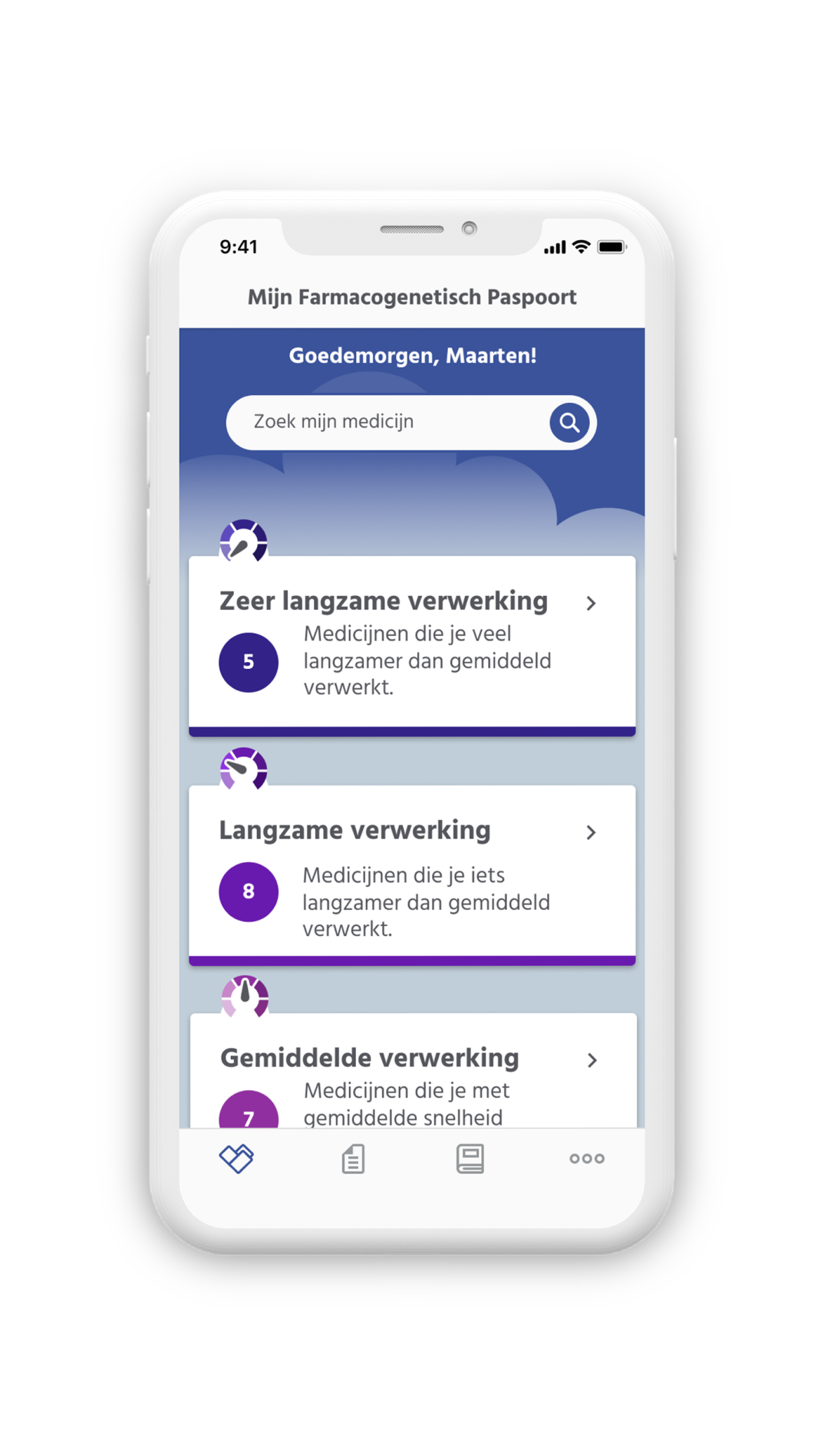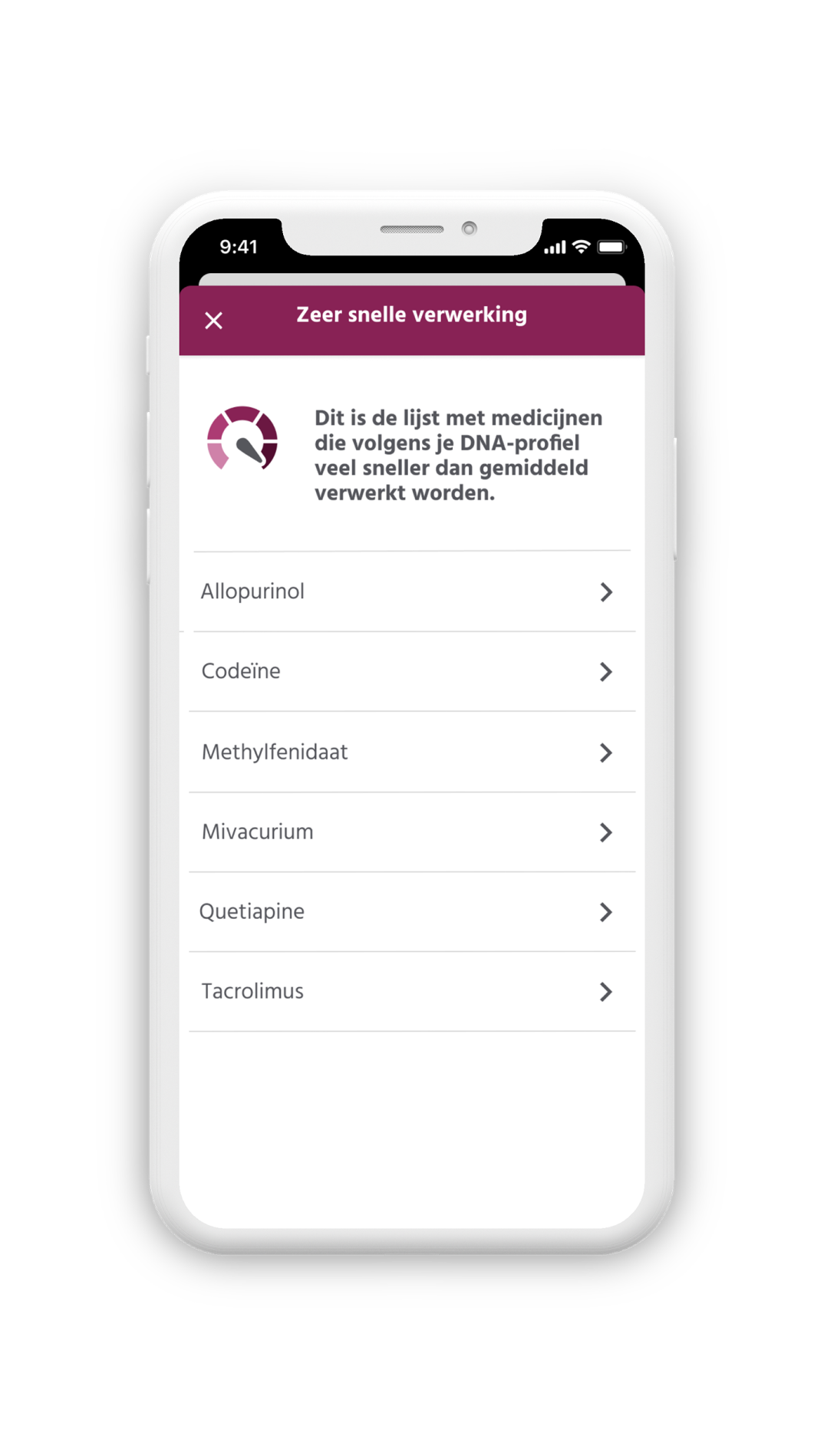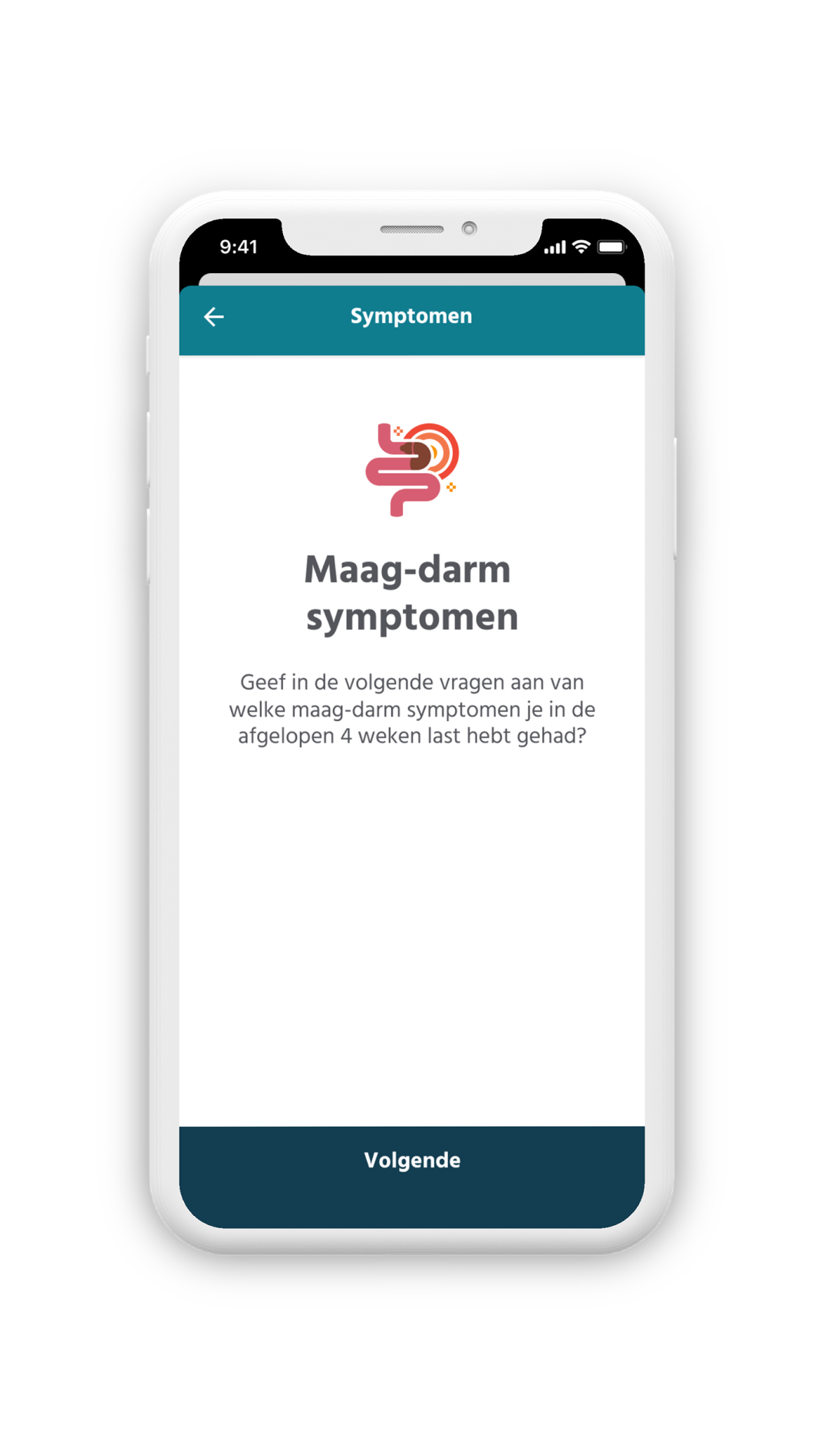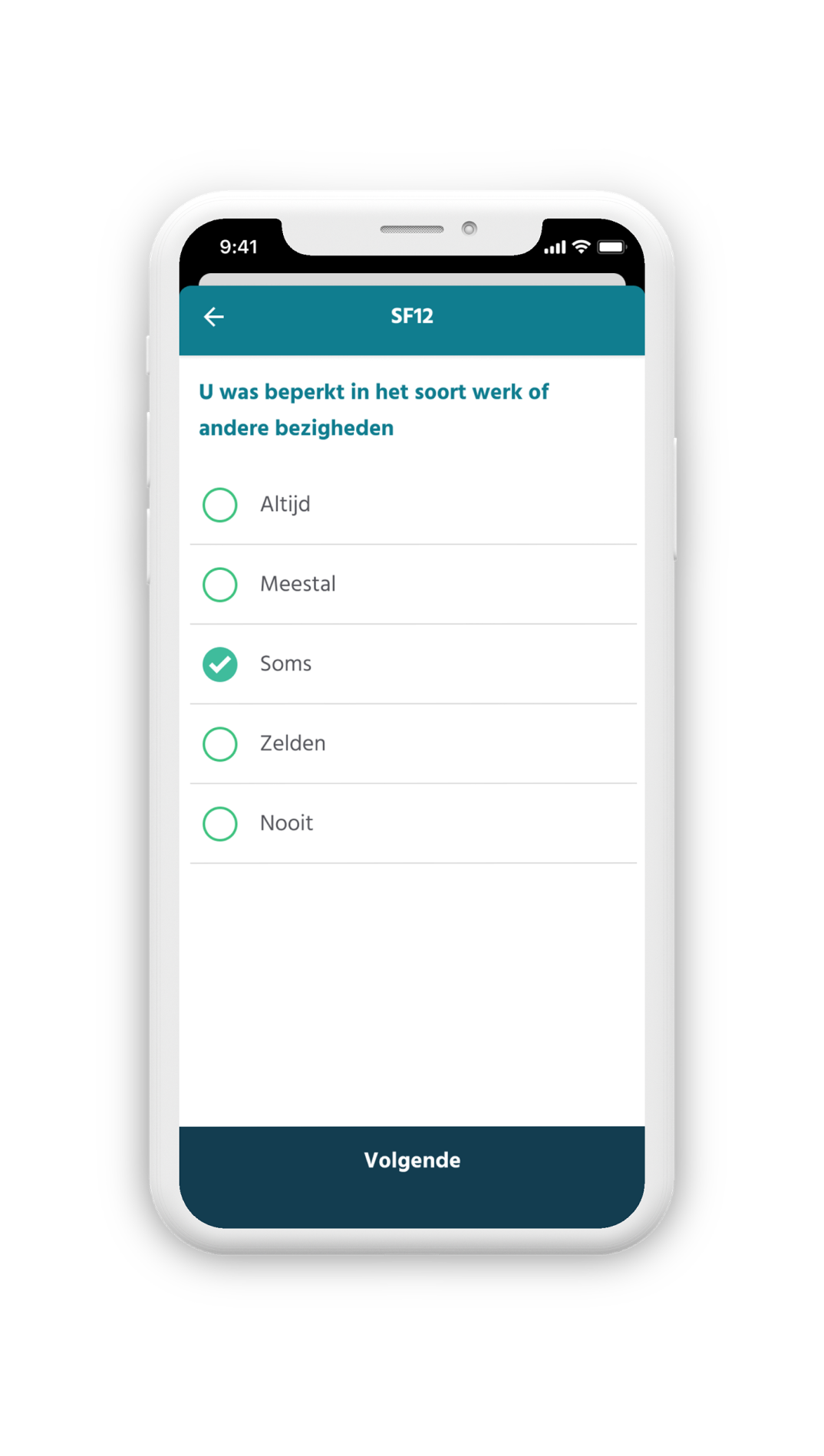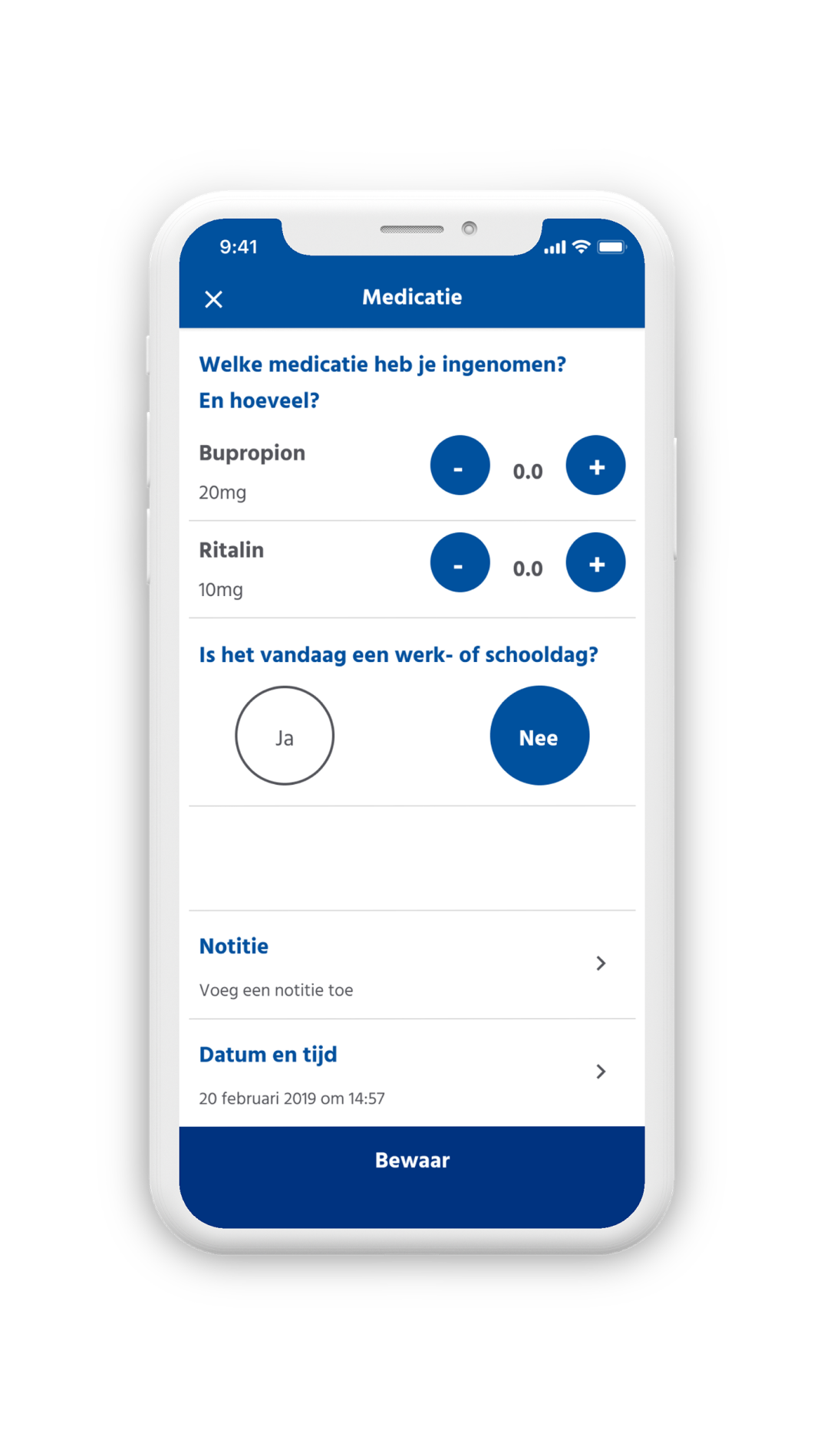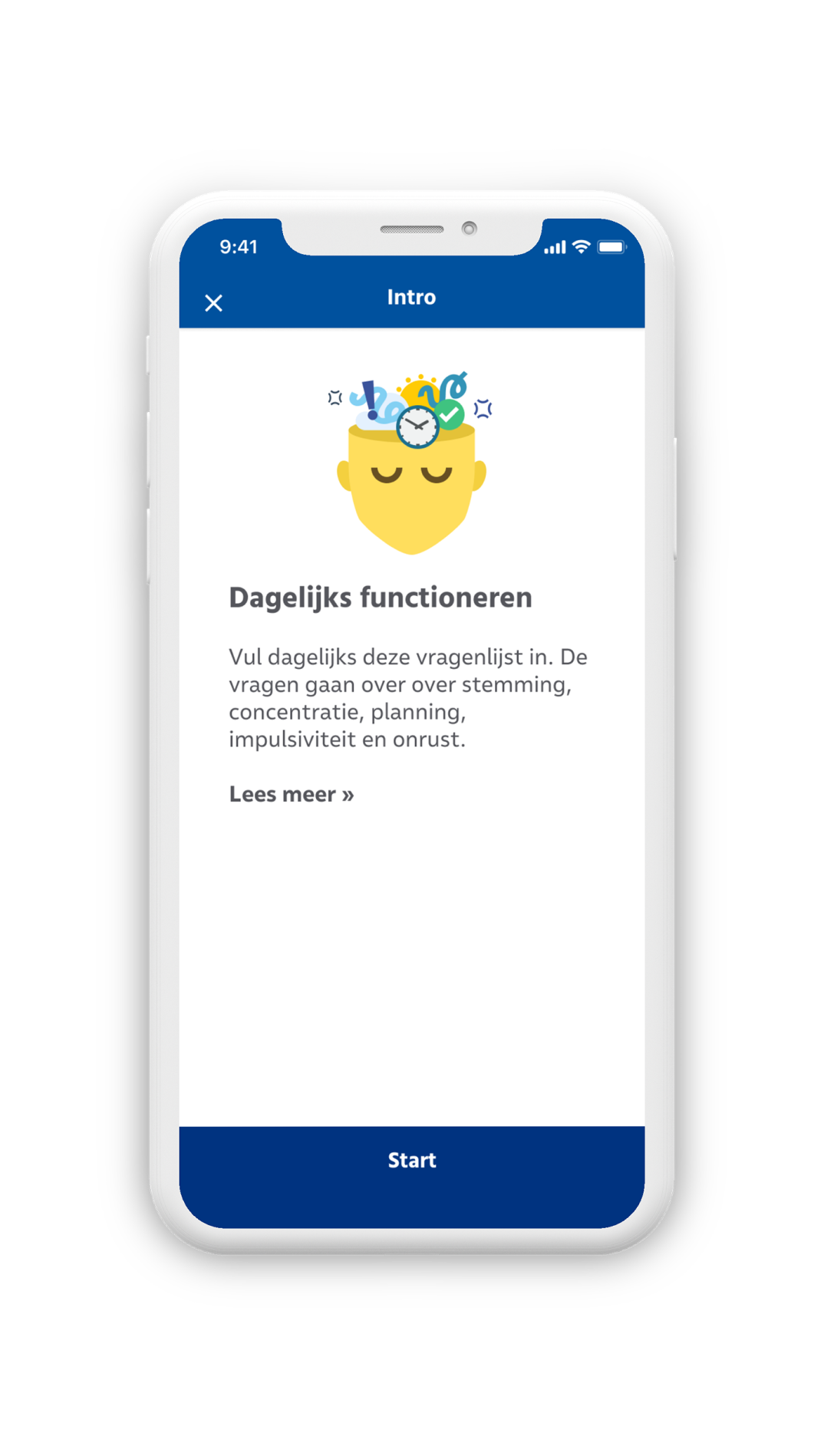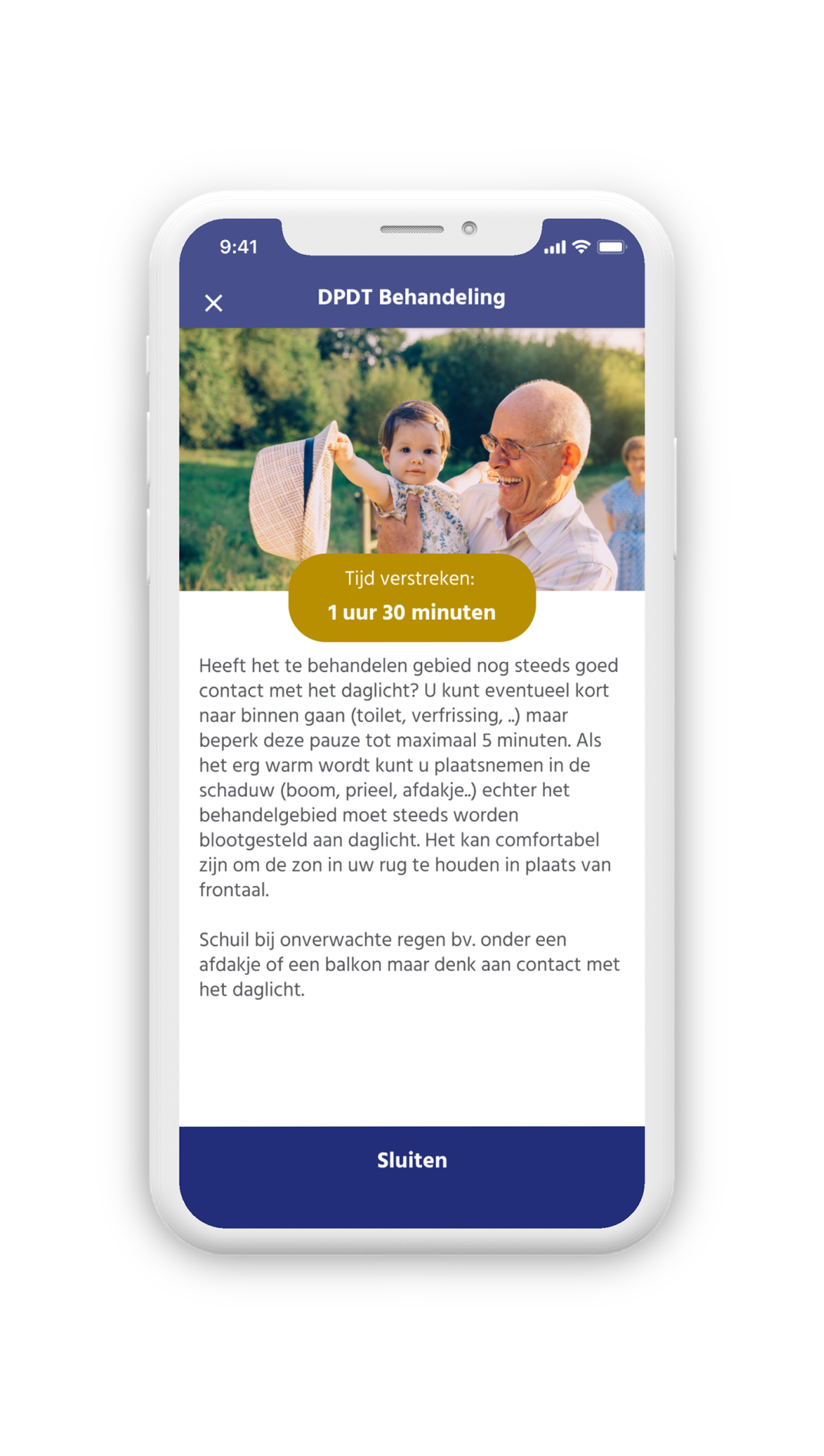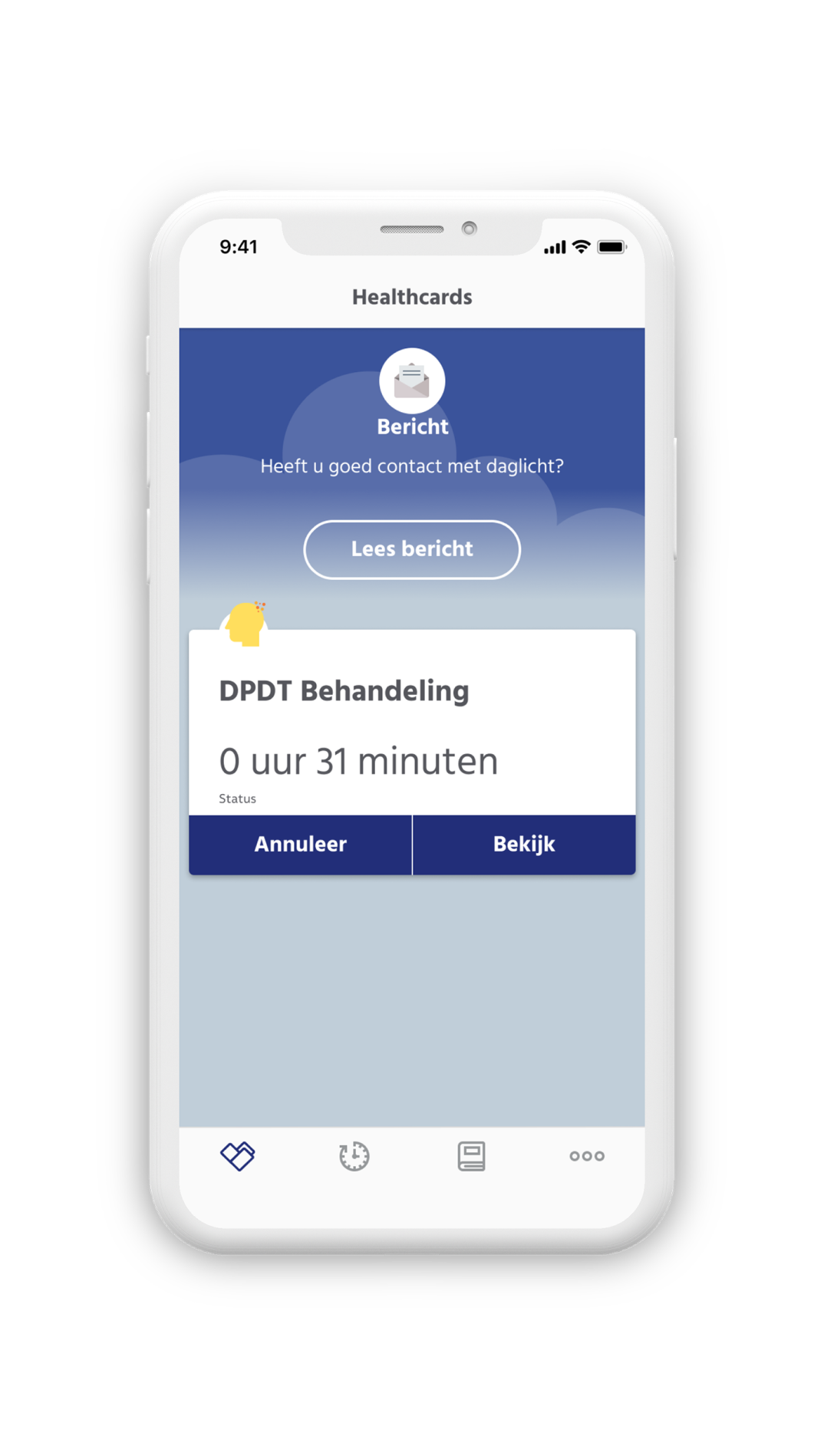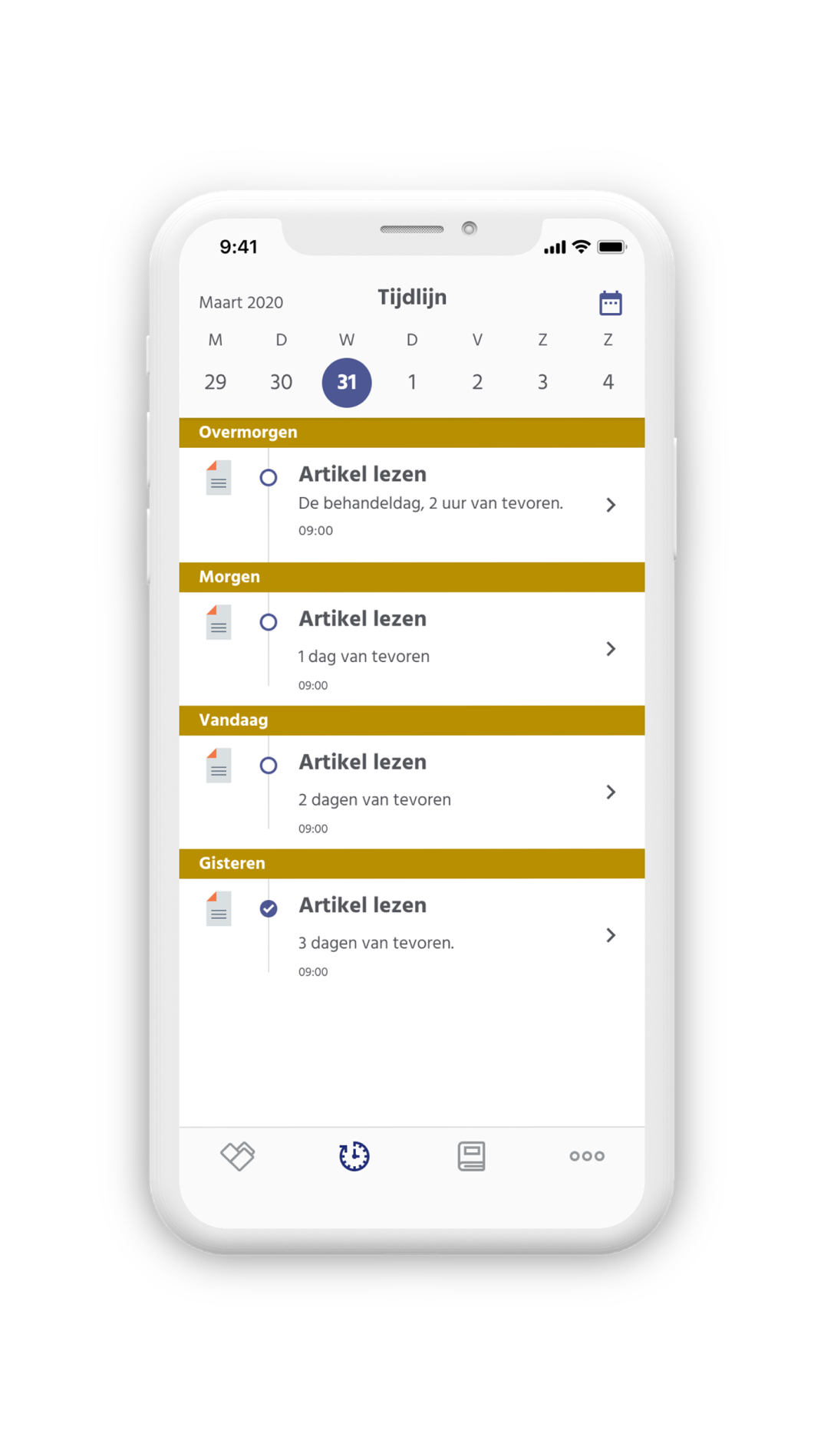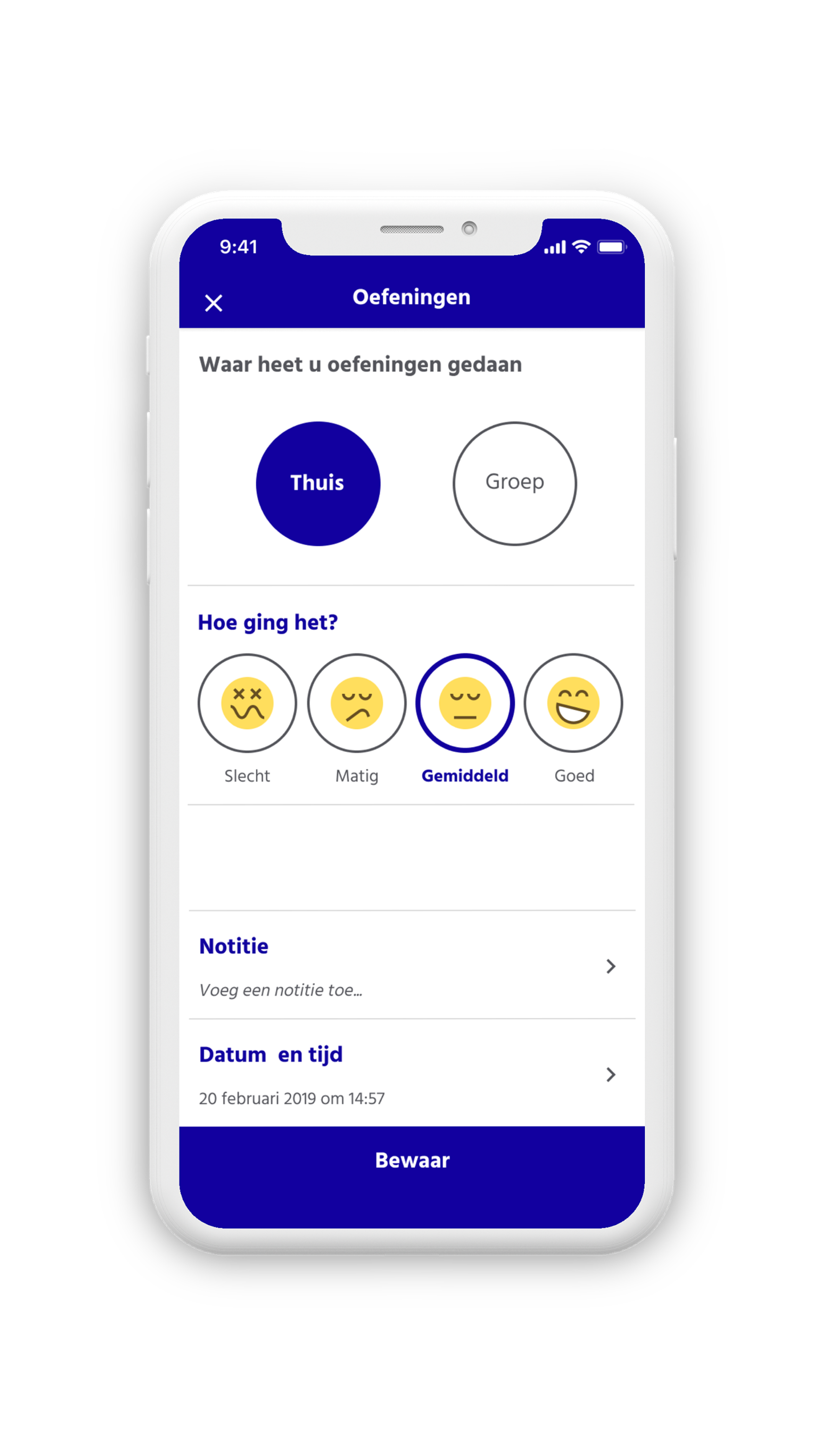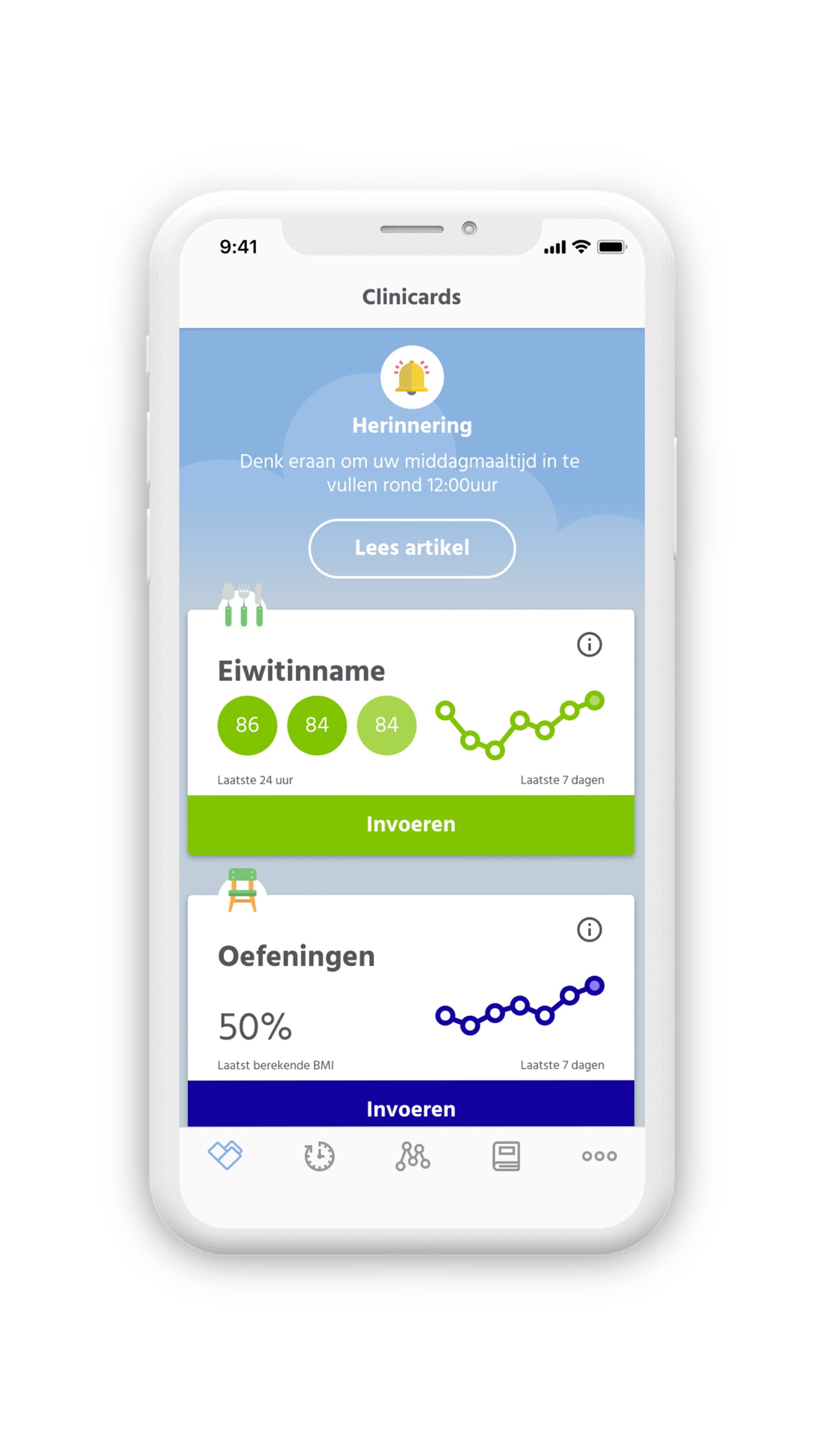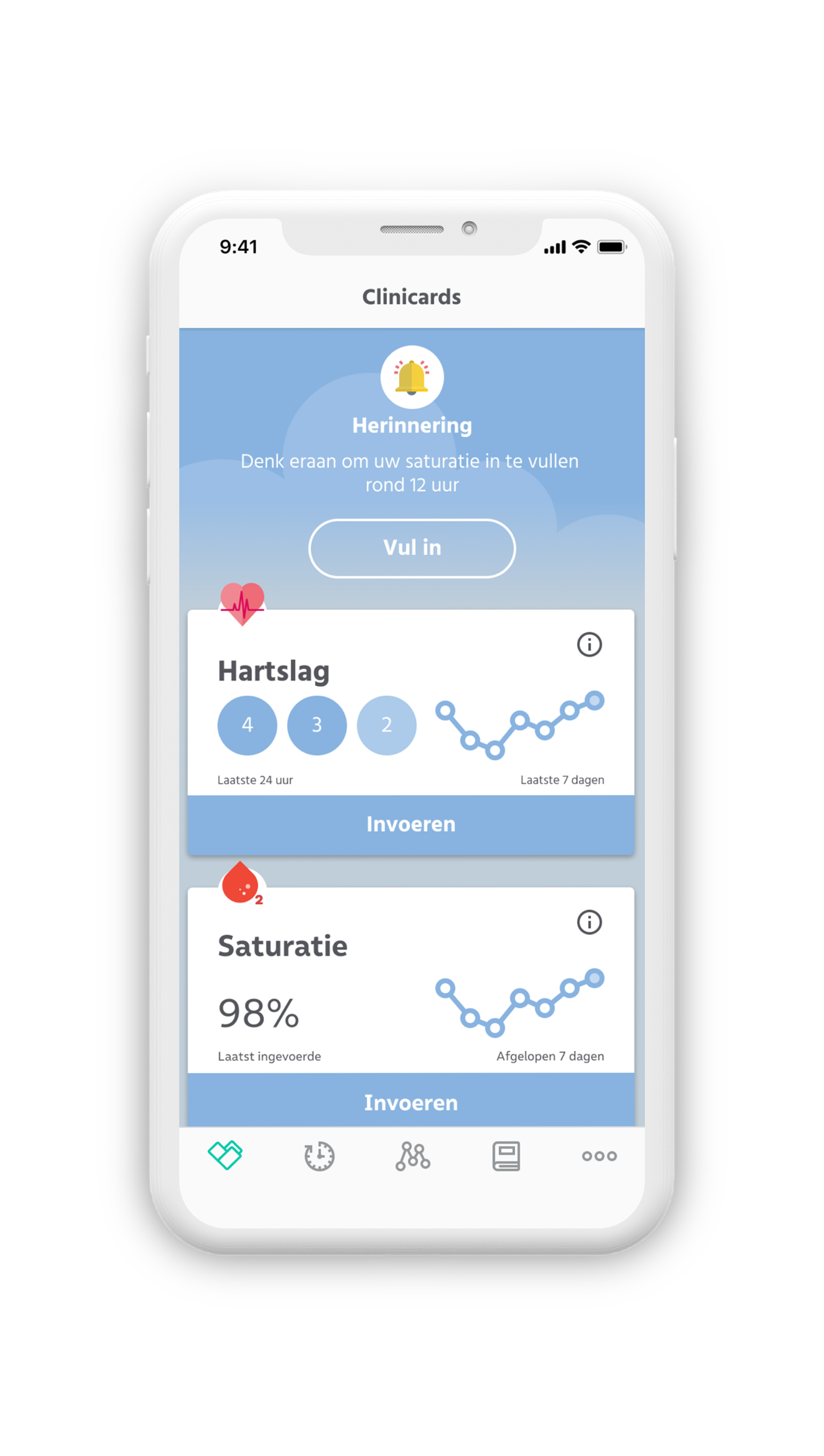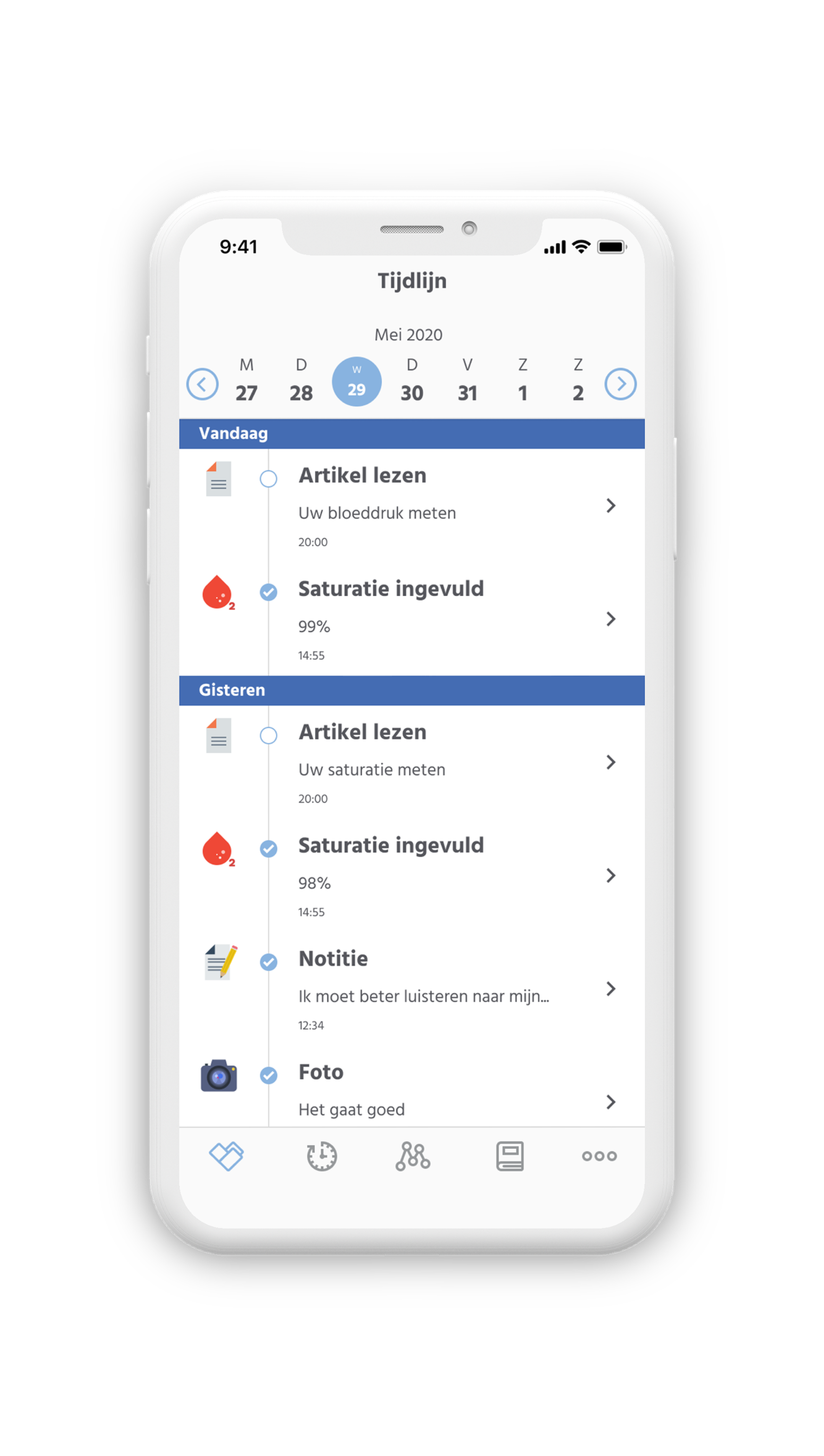Samen
zorgen.
For her.
Clinicards is the digital healthcare platform to monitor, inform and coach patients
.


Together with Winclove, we are conducting an open-label, observational study of the effect of WinBiotic products (Probiotics) on quality of life (WinQ study). Microbiotics play an important role in human health and well-being, providing protection against pathogens. Disruption can lead to gastrointestinal and many other serious complaints including depression, diabetes, obesity, allergies, and urinary tract infections, among others. Probiotics have shown in clinical trials to be safe and effective in restoring proper balance. The WinQ study specifically looks at the effect of different formulations of WinBiotic on respondents’ quality of life and the presence, severity and frequency of certain symptoms.

For anyone starting ADHD medication, the myADHDay app has been developed in collaboration with Medice BV. This app is specially designed to provide teens and adults with optimal support during the first phase of their treatment. The first six weeks in particular can be challenging, as dosage and timing of intake vary from person to person. In addition to helpful lifestyle tips and valuable information, the app provides the ability to record the amount, timing and combination of their medication and assess daily functioning. The combination of this data offers the patient and those around them insight into ADHD treatment. The data can be shared with the healthcare provider to discuss and optimize pharmacotherapy.

In collaboration with Galderma BV, we have developed the DPDT app specifically for patients undergoing pharmacotherapy in combination with Daylight PhotoDynamic therapy (DPDT). This app provides comprehensive information about both the condition and the treatment and helps the patient to correctly combine the medication and sunlight exposure. The app includes a countdown mechanism that tracks sunlight exposure time. In addition, the app supports the patient during this period with useful notifications and helpful tools.
ProMuscle
Lifestyle program for the elderly
As you get older, muscle strength decreases significantly. Wageningen University has therefore launched ProMuscle. The goal of the lifestyle program is to improve the self-reliance of frail seniors, potentially allowing them to live at home longer.
The program combines progressive strength training with protein-rich nutrition. Clinicards are used by the elderly (between 65-93 years of age) to record protein consumption at different meal times, the amount of exercise and its progress.
The lifestyle program has been successful, and participating seniors report feeling stronger as their physical functioning has improved.
Monitoring after pulmonary embolism
Erasmus MC plans to continue observing patients treated pharmacotherapeutically for pulmonary embolism for 90 days at home. During the first 17 days, measurements are taken daily at a set time. Patients use a sensor (CheckmePro) that measures saturation and heart rate for this purpose. The sensor is directly linked to the relevant Clinicards. It also measures activity (steps) and allows patients to record the degree of dyspnea (shortness of breath) and chest pain.
After the 17 days, once a week measurement is sufficient. In addition, the patient has the opportunity to record the degree and moment of shortness of breath and pain.
Throughout the observation period, the patient is naturally provided with relevant information at the right time.
